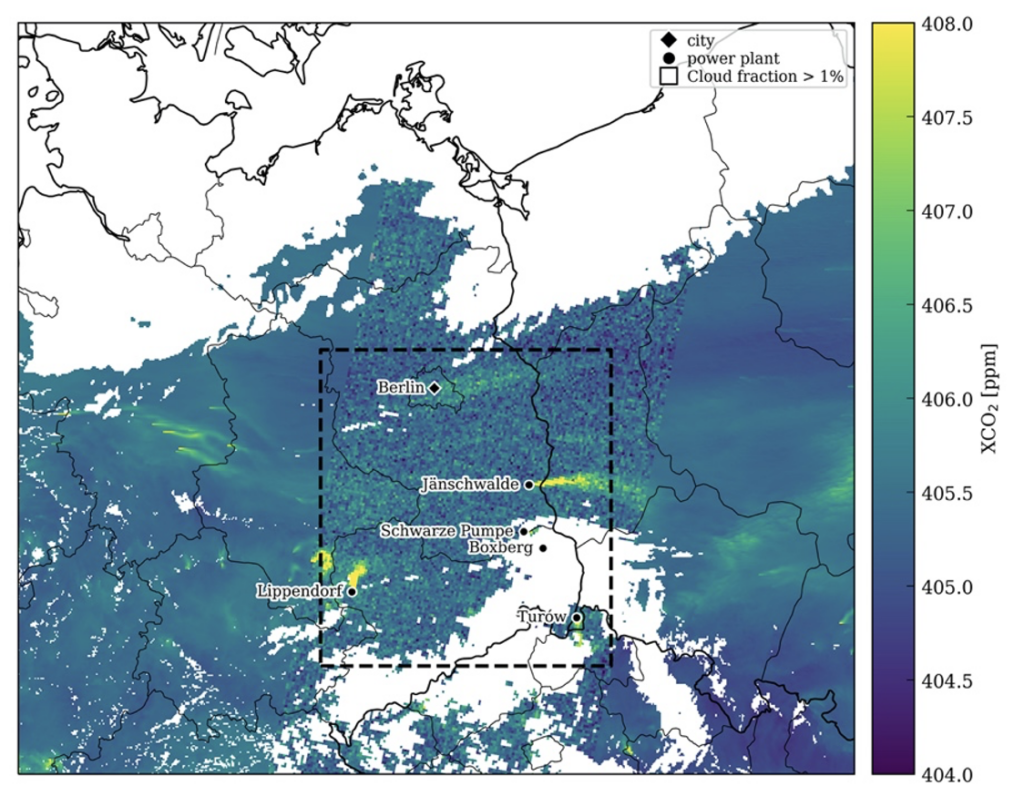Since the Paris Agreement was adopted in 2015, the role of space-based observations for monitoring anthropogenic greenhouse gas (GHG) emissions has increased. To meet the requirements for monitoring carbon dioxide (CO2) emissions, the European Copernicus programme is preparing a dedicated CO2 Monitoring (CO2M) satellite constellation that will provide CO2 and nitrogen dioxide (NO2) observations at 4 km2 resolution along a 250 km wide swath.

In a new paper, we adapt the recently developed divergence method to derive both CO2 and nitrogen oxide (NOx) emissions of cities and power plants from a CO2M satellite constellation by using synthetic observations from the COSMO-GHG model. Due to its long lifetime, the large CO2 atmospheric background needs to be removed to highlight the anthropogenic enhancements before calculating the divergence. Since the CO2 noise levels are large compared to the anthropogenic enhancements, we apply different denoising methods and compare the effect on the CO2 emission estimates. The annual NOx and CO2 emissions estimated from the divergence maps using the peak fitting approach are in agreement with the expected values, although with larger uncertainties for CO2. We also consider the possibility to use co-emitted NOx emission estimates for quantifying the CO2emissions, by using source-specific NOx-to-CO2 emission ratios derived directly from satellite observations. In general, we find that the divergence method provides a promising tool for estimating CO2 emissions, alternative to typical methods based on inverse modeling or on the analysis of individual CO2 plumes.
Reference: Janne Hakkarainen, Iolanda Ialongo, Erik Koene, Monika E. Szeląg, Johanna Tamminen, Gerrit Kuhlmann, Dominik Brunner: Analyzing Local Carbon Dioxide and Nitrogen Oxide Emissions From Space Using the Divergence Method: An Application to the Synthetic SMARTCARB Dataset, Frontiers in Remote Sensing, vol 3, 2022, doi:10.3389/frsen.2022.878731, Link